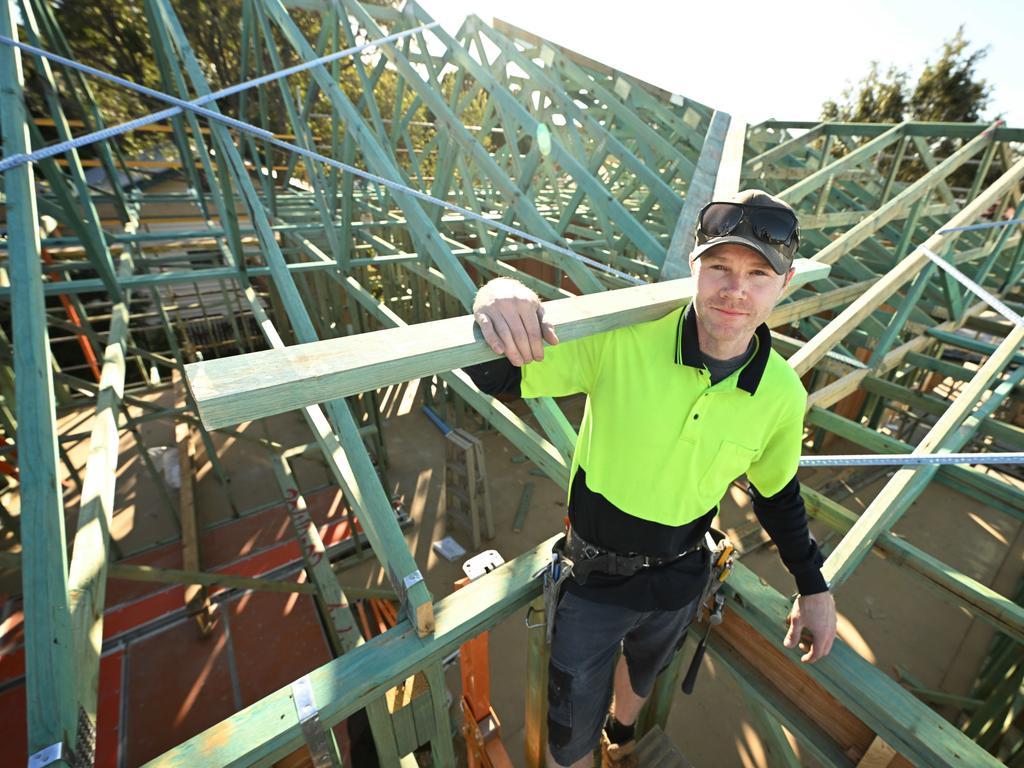Deloitte warns against blockbuster pay rises, says anything within the 3pc range is ‘very reasonable’
As unemployment tumbles to a 50-year low and the cost of essential goods soars, Deloitte has warned workers against seeking pay rises to match inflation.

A big four consulting firm is warning workers against using their strengthened bargaining power to seek blockbuster pay rises and mirroring the Anthony Albanese-backed 5.2 per cent jump in the minimum wage, saying it will be “detrimental” to them in the “longer-term”.
In its quarterly business outlook, Deloitte Access Economics says “pay rises with a three in front of them are very reasonable”, despite forecasting headline inflation to hit almost 7 per cent by the end of the year.
“A key determinant of how entrenched inflation will become is the potential for a wage-price spiral where wages increase in response to price increases,” Deloitte says in its report, led by partner Stephen Smith. Deloitte says rather than matching inflation, salary gains should come from increased productivity and business investment with the spoils shared with workers, not shareholders.
It comes as markets are forecasting another hefty rise in interest rates within weeks after Australia’s unemployment rate hit a near 50-year low of 3.5 per cent, bolstering workers’ bargaining power.
Deloitte slams business for “short-termism at its worst”, directing cash windfalls from performance gains into share buybacks and other stock-boosting initiatives rather than wage increases.
“Over the last few decades, the share of income accruing to firms in terms of profits has lifted. But instead of driving investment and wages, those profits have gone to shareholders, including by way of share buybacks. On the one hand, that is short-termism at its worst. On the other, what incentives do corporates have to act any differently?”

Deloitte criticises Labor for adopting the “smallest of small target strategies” during the May election, with its failed 2019 campaign under Bill Shorten “putting an end to major policy ambition from opposition for the foreseeable future”.
“Australians are worse off as a result,” Deloitte says. “In the longer term, Australia’s policy settings will matter enormously. The four forces of globalisation, financialisation, technology and demographics have collectively enabled a fifth emerging force to accelerate – geopolitics.
“That is particularly true in the Asia Pacific region.”
The Fair Work Commission earlier this month approved a $40 a week pay rise to the 2.7 million Australian workers on the minimum wage, a move Mr Albanese welcomed. Workers covered by the modern award minimum wage will also see an increase of 4.6 per cent from October. “As multi-year enterprise agreements expire and individual contracts are renegotiated, the risk is that the decision is seen as a yardstick,” Deloitte says.
“Policymakers, including the Treasurer and the RBA governor (Philip Lowe), are now trying to wind back expectations.”
Mr Lowe said last month “steady state wage increases in Australia should be around 3.5 per cent. If wage increases become common in the 4 and 5 per cent range, it’s going to be harder to return inflation to 2.5 per cent and then we’d be in a world where the economy would have to slow more and perhaps the unemployment rate would need to rise. Three and a half (per cent) is kind of the anchoring point. I know it’s difficult when inflation is higher than that.”
Deloitte Access Economics partner Stephen Smith forecast price growth to peak at 6.6 per cent in the second half of 2022.






To join the conversation, please log in. Don't have an account? Register
Join the conversation, you are commenting as Logout